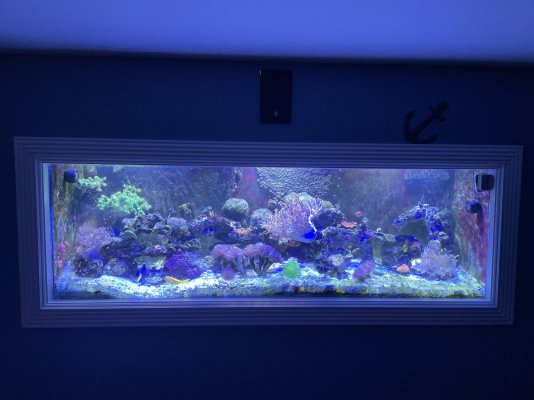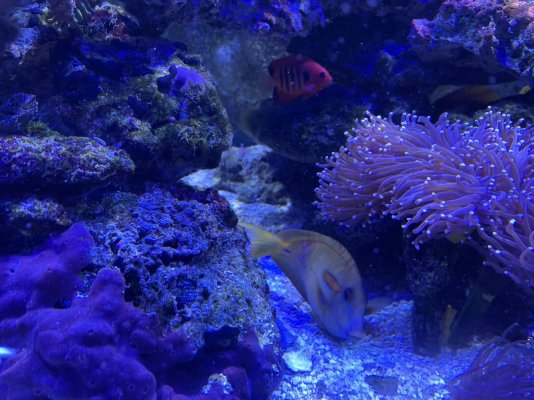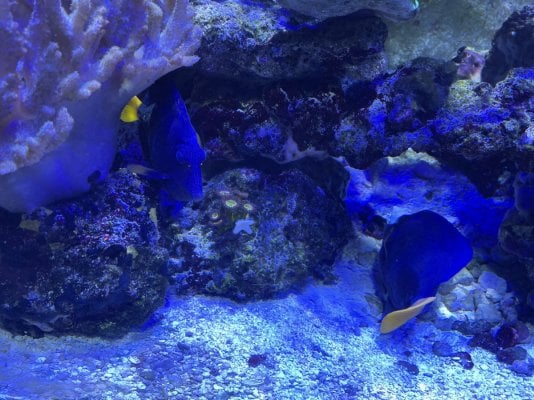I need some help I have a 265 Reef that’s been up and running for 20 years
About two months ago I decide to do some aqua scape with my old rocks.
I took about a third of the rocks out broke them up glue them back together. Nothing was in the system it was done totally outside of the system.
I have never clean my sand bed in 20 years.
So I started to clean my San bed
Since then I have lost
powder blue
Clown fish
Rusty angel
Blue hippo
I’m currently feeding 3 to 4 times a day
With selcon And just started recently using metroplex
I’m doing about a 30 gallon water change every other day
Most fish in a tank look very bad.
Is there any advice out there?
About two months ago I decide to do some aqua scape with my old rocks.
I took about a third of the rocks out broke them up glue them back together. Nothing was in the system it was done totally outside of the system.
I have never clean my sand bed in 20 years.
So I started to clean my San bed
Since then I have lost
powder blue
Clown fish
Rusty angel
Blue hippo
I’m currently feeding 3 to 4 times a day
With selcon And just started recently using metroplex
I’m doing about a 30 gallon water change every other day
Most fish in a tank look very bad.
Is there any advice out there?






















